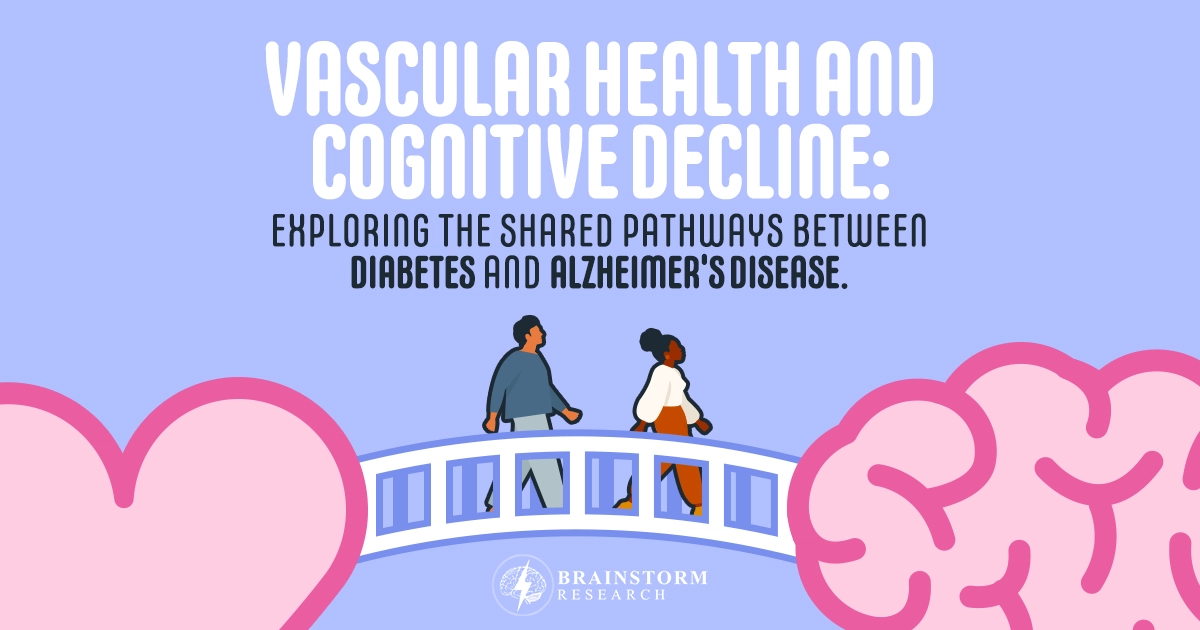The complex relationship between diabetes and Alzheimer’s disease has long been a subject of intense scientific scrutiny. While the exact mechanisms are still being unraveled, a growing body of research highlights the crucial role of vascular health in this connection. Specifically, the damage inflicted on blood vessels by diabetes appears to significantly increase the risk of cognitive decline and the development of Alzheimer’s and dementia.
Finding the Connection
Diabetes, particularly type 2, is characterized by chronic high blood sugar levels. This sustained hyperglycemia can lead to negative effects on the vascular system. Small blood vessels, or microvasculature, are especially vulnerable. These vessels are essential for delivering oxygen and nutrients to the brain. When they become damaged or narrowed, the brain’s delicate neural networks are deprived of vital resources. This can result in reduced cerebral blood flow, a known risk factor for cognitive impairment.
Vascular dementia, a form of cognitive decline caused by reduced blood flow to the brain, shares several risk factors with Alzheimer’s, including diabetes. Studies have shown a strong correlation between diabetic microangiopathy—damage to small blood vessels—and the presence of Alzheimer’s-related brain changes, such as amyloid plaques and neurofibrillary tangles.
Research also indicates that diabetes can exacerbate other Alzheimer’s risk factors. For instance, it can contribute to hypertension and high cholesterol, both of which are known to impair vascular health and increase the risk of cognitive decline. The long-term damage done to the vascular system due to diabetes can lead to small strokes, or “silent strokes,” that can increase the rate of cognitive decline.
The clinical implications of this connection are profound. Managing diabetes effectively, including maintaining healthy blood sugar levels, controlling blood pressure, and adopting a heart-healthy lifestyle, may offer a protective effect against cognitive decline. This underscores the importance of a holistic approach to diabetes care, one that prioritizes vascular health and brain wellness.
Regulating Blood Sugar: A Proactive Approach to Brain Health
Given the strong link between diabetes, vascular health, and Alzheimer’s risk, actively managing blood sugar levels becomes crucial for preserving cognitive function. Here are some key strategies:
- Dietary Modifications: Focus on a balanced diet rich in whole grains, fruits, vegetables, and lean proteins. Limit processed foods, sugary drinks, and refined carbohydrates, which can cause rapid spikes in blood sugar.
- Regular Exercise: Engage in regular physical activity, aiming for at least 150 minutes of moderate-intensity exercise per week. Exercise improves insulin sensitivity, helping the body use glucose more effectively. Combine aerobic exercises (walking, swimming, or cycling) with strength training for optimal benefits.
- Stress Management: Chronic stress can elevate blood sugar levels. Practice stress-reduction techniques, such as meditation, yoga, or deep breathing exercises. Prioritize adequate sleep, as sleep deprivation can also affect blood sugar control.
- Regular Check-ups: Schedule regular check-ups with your doctor to monitor your blood sugar levels and overall health. Early detection and management of diabetes-related complications can help protect vascular health and reduce the risk of cognitive decline.
By adopting these lifestyle modifications and working closely with healthcare professionals, individuals with diabetes can take proactive steps to regulate their blood sugar and potentially mitigate the risk of cognitive decline. This holistic approach emphasizes the interconnectedness of physical and cognitive health, highlighting the importance of a comprehensive strategy for well-being. Always discuss with your doctor before implementing a new diet or exercise regimen to make sure it’s the right choice for your health.
Explore Enrolling Research Studies
The research into the overlapping pathways of diabetes and Alzheimer’s disease is still evolving. Studies conducted today will help the researchers of tomorrow to find ways to slow, stop, and even prevent the development of Alzheimer’s disease.
Participating in clinical research is essential to advancing our understanding of the complex relationship between vascular health, diabetes, and Alzheimer’s disease and developing effective interventions that can improve the lives of affected individuals. Find research opportunities and get involved today!


